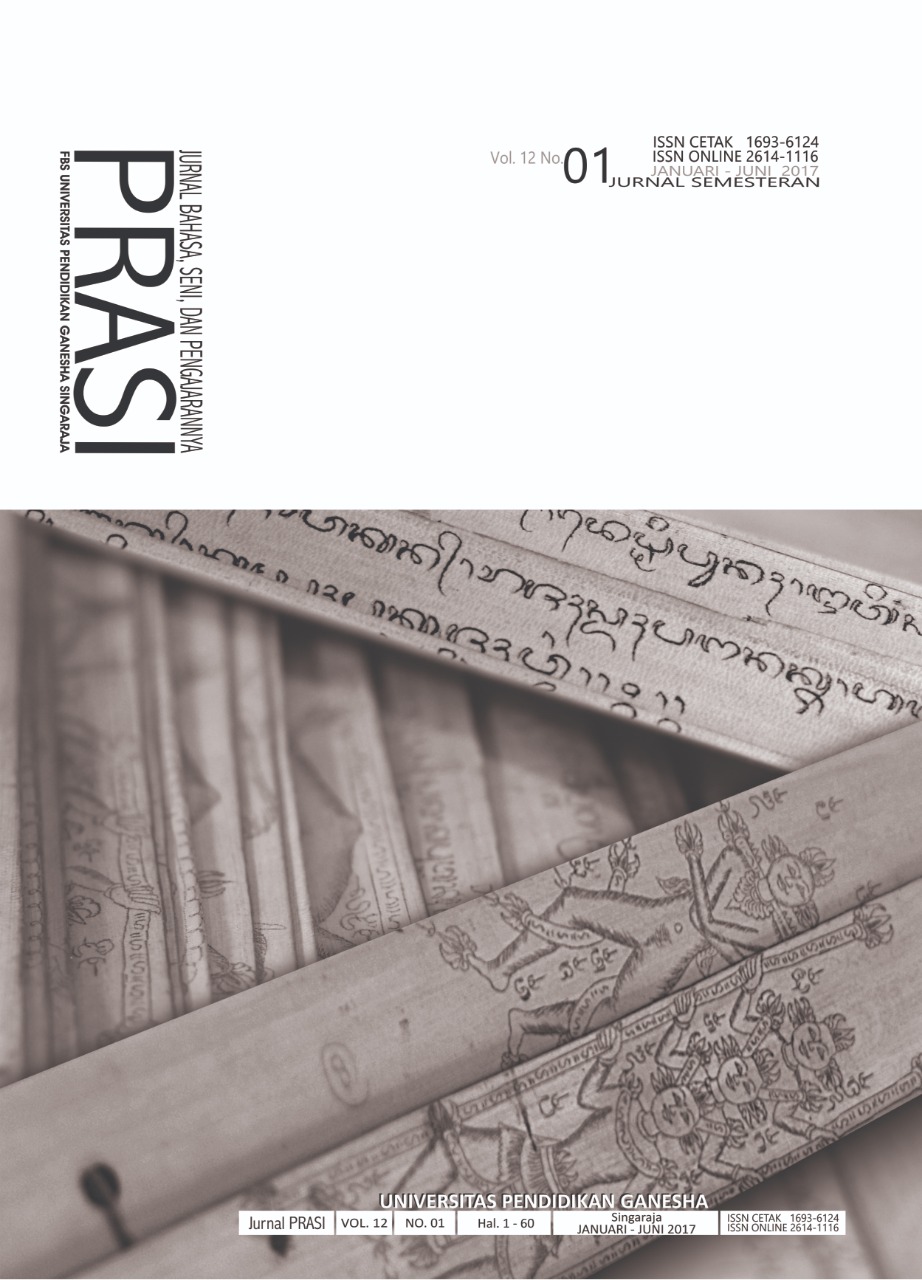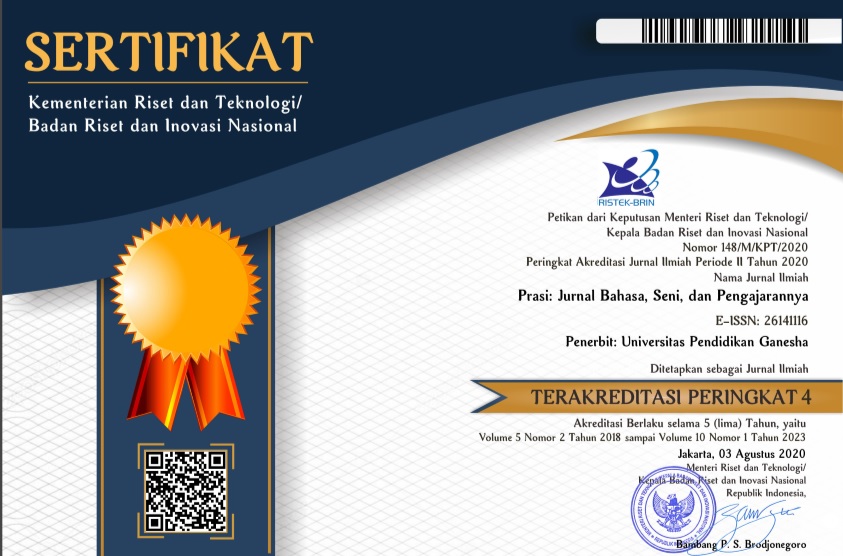A CASE STUDY: PARENTS’ PERCEPTIONS ON CHILDREN BILINGUAL EDUCATION IN BALI
DOI:
https://doi.org/10.23887/prasi.v12i01.13913Abstract
This article aimed to discuss the parents’ perceptions, on children bilingual education in Bali. Bilingual education could be defined as involving or using two languages in education system, in which one of the language used is students’ native language and in using the languages without mentioning the degree of each language proportion. This small investigation explored a young Balinese girl who became bilingual in English and Bahasa Indonesia and her parents’ perceptions about bilingual education. It involved participant observation, questionnaires administer and interview with her parents. The results of the study showed that the parents wanted their children to be bilingual because it would help in getting better life. Besides, collaboration between teachers, parents, society and environment is needed in order to promote bilingual education without losing children native language, because the parents believe that being bilingual meant children can speak both foreign language and native language equally without losing their native languageDownloads
Published
2017-06-16
Issue
Section
Articles
License
Authors who publish with Prasi agree to the following terms:- Authors retain copyright and grant the journal the right of first publication with the work simultaneously licensed under a Creative Commons Attribution License (CC BY-SA 4.0) that allows others to share the work with an acknowledgment of the work's authorship and initial publication in this journal
- Authors are able to enter into separate, additional contractual arrangements for the non-exclusive distribution of the journal's published version of the work (e.g., post it to an institutional repository or publish it in a book), with an acknowledgment of its initial publication in this journal.
- Authors are permitted and encouraged to post their work online (e.g., in institutional repositories or on their website) prior to and during the submission process, as it can lead to productive exchanges, as well as earlier and greater citation of published work. (See The Effect of Open Access)


.png)
.png)









